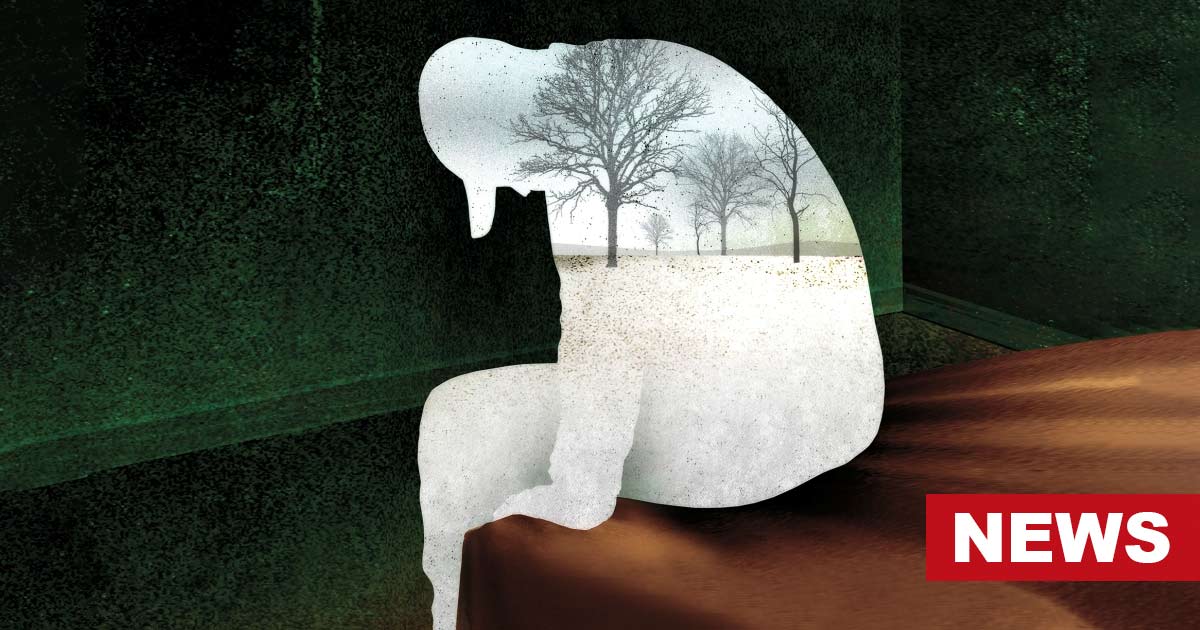Recent research from Harvard University’s Project Implicit Health discovered that while suicidal ideation reaches its peak during the winter, suicide attempts are most common in late spring and early summer, particularly in the early morning hours.
The study’s findings challenge the common misconception that suicide behaviors peak in winter. Brian O’Shea, Ph.D., one of the study investigators and an assistant professor of social psychology at the University of Nottingham, emphasized that their paper is the first to demonstrate a peak in suicidal ideation during winter.
He also mentioned that people are often surprised to learn about this phenomenon, as suicide attempts actually increase in spring/early summer.
The findings were published online in Translational Psychiatry on May 12. Previous studies exploring the seasonality of suicides and suicide attempts have indicated a peak in spring and early summer, but little information was available regarding the reasons behind this pattern.
To investigate further, O’Shea and his colleague from the University of Amsterdam, René Freichel, analyzed data from one of the databases within Project Implicit Health. The dataset included self-report measures on suicidal ideation, self-harm, past suicide attempts, and respondents’ implicit biases on these subjects.
The analysis incorporated data from 10,000 respondents residing in the United States, United Kingdom, and Canada, collected between April 2012 and November 2018.
The majority of the sample consisted of young females, with 38% (3247) of them reporting at least one suicide attempt. The researchers discovered a peak in negative mood and desire to die in December, particularly among those who had attempted suicide. Suicidal ideation peaked approximately 3–4 months before the annual seasonal crest of suicide attempts, which occurred in early spring and summer.
O’Shea explained that affected individuals may experience severe depression and a lack of energy throughout the winter months. This period could potentially place them below the threshold of severe suicide risk due to the simultaneous high level of suicidal ideation and low energy.
As the days become longer, brighter, and warmer, individuals’ moods tend to improve, potentially granting the most at-risk individuals a slight relief from depression and an increase in energy to contemplate and plan their suicide attempts.
It is essential to acknowledge a significant limitation of the study, which is that all the responses included in the analysis were based on self-report.
To validate these findings, future research should incorporate ecological momentary assessment, which involves questioning participants about suicidal intent at various time points using a large community sample, along with real-time monitoring of vital signs. O’Shea and his team hope that the study’s results will inform clinicians’ assessments of patients who are at risk of suicide.
Commenting on the findings about how suicidal ideation reaches its peak during the winter, Dr. Justin Shuster, assistant professor of psychiatry at the University of Pittsburgh, elaborated on the study’s shortcomings.
He pointed out that the study’s database did not include responses from older men with a history of substance abuse, who are more likely to attempt or commit suicide. He agreed with O’Shea’s idea that spring might bring an energy boost to the desire to end one’s life but proposed an alternative theory.
Shuster suggested that when people are depressed in winter, they anticipate feeling better with the arrival of warmer weather in spring. If their condition doesn’t improve, they may think, “If I’m going to feel like this forever, I may as well follow through with these plans.” He also noted that early morning attempts between 4 and 6 AM often occur when individuals are alone and distractions are minimal.
Shuster frequently observes cases involving intoxication during these hours, either from substances or alcohol, as people face the daunting prospect of a new day.
The study received funding from a German Academic Exchange Service Scholarship and an EU Horizon 2020 Fellowship. O’Shea, who reports being an unpaid member of Project Implicit’s Scientific Advisory Board and part of the Executive Committee of Project Implicit Health, hopes that the study’s findings will contribute to a better understanding of suicide risk and assist clinicians in identifying and supporting individuals at risk.

